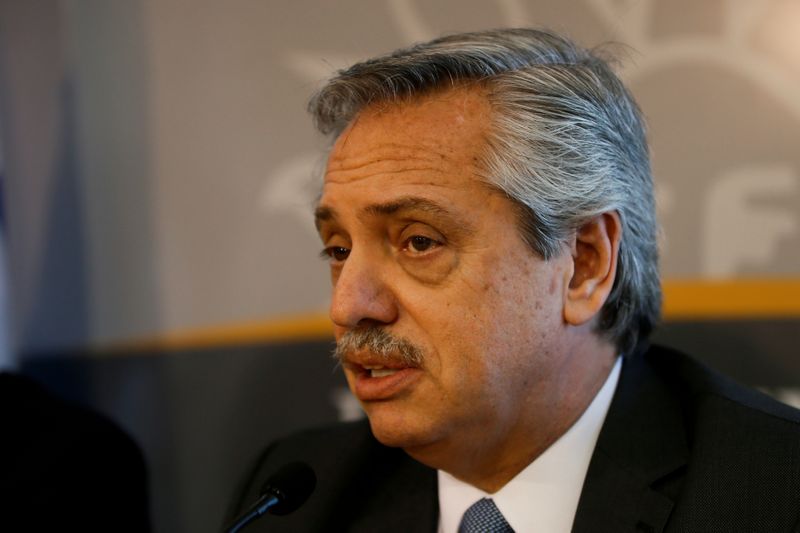BUENOS AIRES (Reuters) - Argentina's new Peronist government announced on Monday that it has struck a deal with industry groups to cut drug prices by 8% amid a severe economic crisis and high inflation that has hammered people's spending power and driven up poverty levels.
The administration of President Alberto Fernandez, sworn in last week, has pledged to roll out a series of measures to bolster the economy and domestic consumption, while reining in inflation through a "social pact" with various organizations.
Fernandez has already announced an increase to levies on agricultural exports and is set to raise taxes on purchases abroad and rates paid on properties in an attempt to bolster funds to pay for increased social subsidies.
"This does not solve all the problems but it does improve everyone's ability to access medicines," Health Minister Ginés González García told reporters after a meeting with industry representatives and President Fernández.

Argentina is facing annual inflation close to 55%, a shrinking economy and poverty levels approaching 40%. The country, Latin American's No. 3 economy, also needs to restructure a large pile of sovereign debt with creditors.